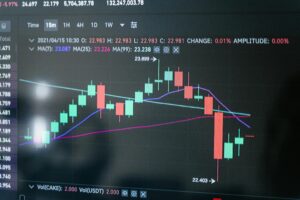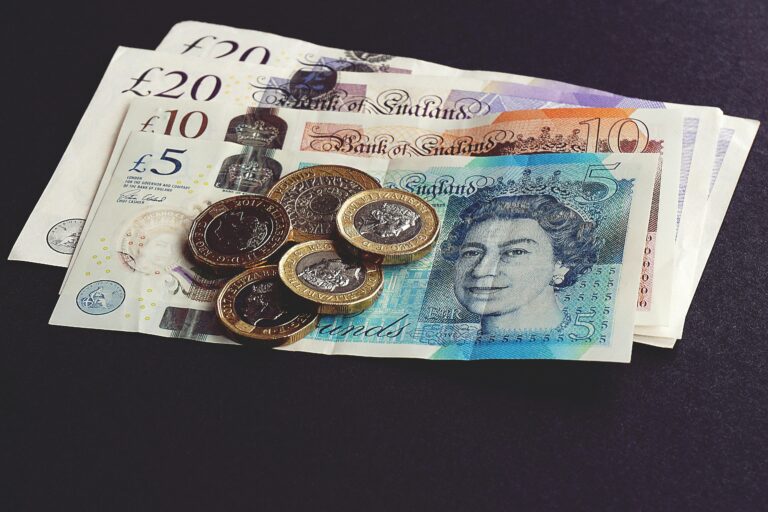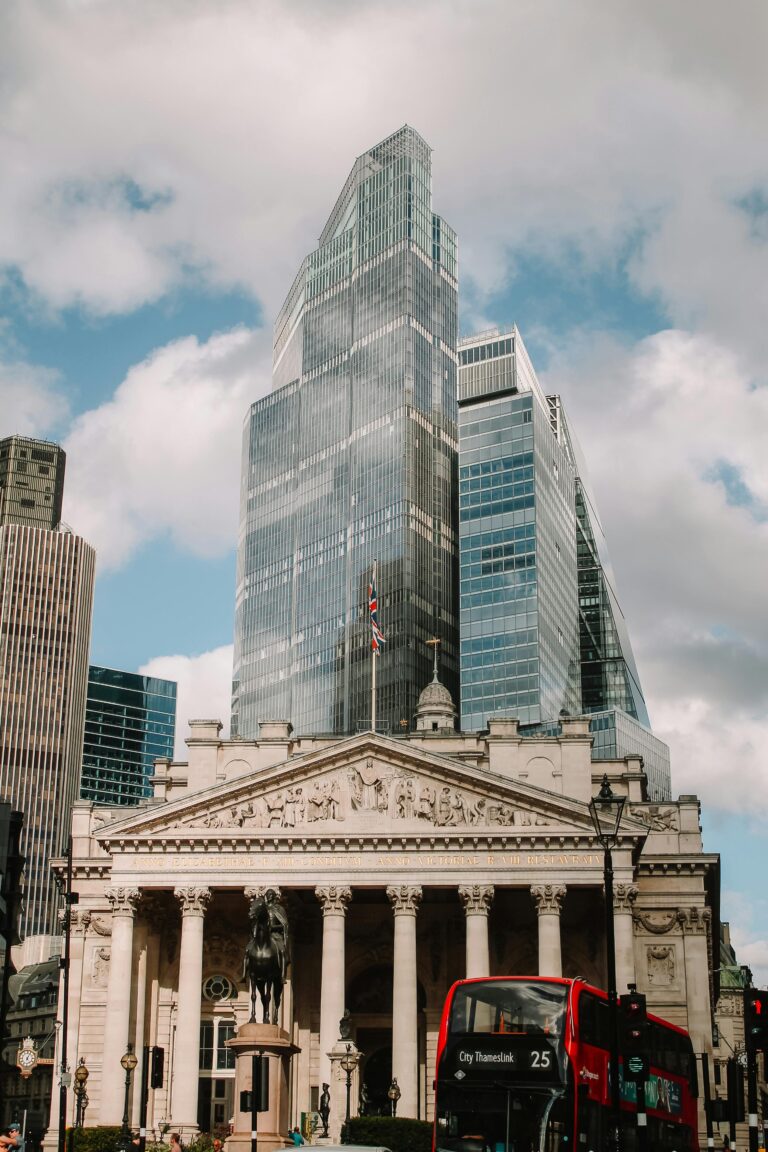
Guest Article – Estate Planning and You
Estate Planning and You A Guest Article by Agueda Estrada Calle This article has been written by Agueda Estrada Calle,

The last few years have seen the rise of a new phenomenon in the form of cryptocurrencies. Of these, the oldest and most well known is Bitcoin (if you haven’t heard of it, here’s a Wikipedia article to get you started). Bitcoin was invented in 2008 and released to the world in 2009, and now each token trades for similar values to a house. So what is it and should you buy it?
I decided to write this article because I saw someone on LinkedIn claim that financial advisers suck for not recommending Bitcoin to their clients. I am certain that the author of that comment working for a Bitcoin exchange had absolutely no impact on their view that financial advisers dismissive of their Next Big Thing were incompetent.

Bitcoin is a response to government control of fiat currency, which is a presence in pretty much every developed country that I can think of. The alternative to that is to peg their currency to a commodity such as gold, which was certainly a feature of many currencies throughout history, but definitely came with some problems, most obviously when a new veil of gold was discovered and the metal flooded the market. Nevertheless, a subset of people look at fiat currencies and hate the fact that governments can adjust the value of their currency by printing money, quantitative easing, etc. Their responses over the years have been numerous, including demands for a return to the gold standard in whatever country they live in, but one more recent approach was instead to create a new currency without government involvement. This currency ended up being called Bitcoin, and it offered people an asset with a) a finite supply and b) widespread replication of all transaction history.
Finite supply is achieved by requiring a certain amount of computational power to be spent by the network to “mine” new tokens, with a maximum of 21 million tokens, at which point no amount of computational power will generate new Bitcoins. In reality this supply is actually slightly diminishing, as people lose access to their coins gradually over time (e.g. this man who accidentally threw away a repository of Bitcoin now thought to be worth the best part of $1 billion).
Widespread replication of transaction data is achieved through the use of the blockchain. I am not a computer expert, but my understanding is that this means that every Bitcoin mining node contains the entire transaction history for all Bitcoins, though specific owners are anonymised. As such, this means that all transactions from all wallets are open to public inspection, adding to the incentive to keep your identity anonymous if you decide to purchase some of these tokens for yourself.
As to what it actually is, at the core of it a Bitcoin is essentially just a cryptographic string. It doesn’t actually do anything more than that. The network as a whole carries out a huge amount of computational work, but owning a Bitcoin doesn’t give you access to any of that computational power (which, as you will see in the next section, is largely wasted work).

You can already no doubt imagine that running an international currency including a transfer service is not straightforward, and it is only made worse by the widespread replication of data that comes from the decentralisation principle of Bitcoin. To incentivise people to lend their computational power to keep the network going, Bitcoin’s founder created a series of incentives for participating network nodes, known as miners. These computers work to solve increasingly complex cryptographic problems, and eventually when the problem is solved one of the miners is awarded some new Bitcoins as a prize. The rest get nothing, but spend a small fortune in energy costs collectively.
Computationally, this solution closes the current block of Bitcoin transactions and opens a new one, with the old block being added to the blockchain for all existing Bitcoins. Importantly, this cryptographic problem solving is entirely artificial – it is not necessary for the operation of a distributed network, but is an integral part of Bitcoin’s reward system and is designed to stop people from easily being able to participate in running the network. The increasing difficulty of the problems coupled with the rising value for each Bitcoin token has led to a situation where the Bitcoin network is currently using more that 175 Terawatt Hours of electricity each year. This is broadly equivalent to the entire country of Poland.
Needless to say, this is wholly unnecessary power waste that could have been put to much better use, but the decentralised nature of Bitcoin means that there is no-one who can step in and make changes to the way the network functions to reduce this colossal waste.

This is a far more complex question than it first seems. At the time of writing, Bitcoin is trading at £64,439 per coin, so you might be forgiven for saying it’s worth that much. But that’s definitely not what some advocates say, and detractors such as myself will argue that it’s actually worth considerably less than this.
When calculating the worth of something, I tend to fall back on another question, namely “What do I get for my money?” In the case of shares, the answer is part ownership of a company and therefore part-entitlement to dividends and capital if the company is wound up. In the case of bonds, it’s a share of a company or country’s debt, meaning you have a known payment schedule and eventual redemption date.
With Bitcoin, it’s a lot less clear what you actually get for your money. You don’t own part of the network because it’s decentralised (arguably the miners are the network, so owning a mining rig is part ownership of the actual network, but not really because if you stop actively participating you also stop any claim you might have to ownership). You don’t own anything that will produce a revenue for you. You aren’t being promised a certain amount of cash at a certain point in future. So what do you actually get?
The answer is that you get a Bitcoin and the hope that someone at some point will pay more for your Bitcoin than you did. With this description, it is very clear that what you are hoping for is that someone will have missed the opportunity you are now taking advantage of and will be desperate to buy in at a later date for a higher price.
Those in the know will probably realise that this is exactly what the Greater Fool Theory posits, namely that some assets will be traded by people solely because they think they were stupid for missing out on the opportunity to buy it earlier and expect that there will be others in future with a similar bent who feel even stupider for missing out even longer. In practice, this means that the only hope for constant growth of this sort of asset is that the pool of people who feel they missed out on early gains continues to sustain the price increases. The reality is that sooner or later the pool will run out and people will be left holding digital assets that do precisely nothing for them with no-one wanting to buy from them.
If you want my view on what a Bitcoin should be worth, it’s fairly controversial: zero. I fail to see how this asset does anything for an owner that can’t be achieved much more efficiently with either other assets or fiat currency.
In short, no. We can all think of things that are both scarce and worthless. For example, my desk has some papers on which I have done some doodling. These specific doodles will never be replicated (not even by me, because my artistic skills are somewhat lacking), but the scarcity does not mean that it is valuable. In fact, almost every piece of rubbish we throw away is unique in some way.
Scarcity on its own does not lead to value. In most cases, it needs to be combined with usefulness or some other form of desirability. For example, gold is scarce and valuable, but gold is highly useful in industry as a catalyst and a conductor and is also highly desirable in jewellery because of its lustre and untarnishability (not a real word, but it should be). My scribblings, although unique, are not of use to anyone, nor are they desirable for their artistic merit.
No. Any of us that have ever worked for a living while being paid less than we are worth will immediately know that this definitely isn’t the case. In this case, the argument is often that Bitcoin is worth at least X because the electricity used to mine each coin was X. This is fallacious reasoning. The value of an asset is based on its utility, and the market is famously uncaring of what has happened in the past. This argument is akin to saying that Northern Rock shares should have returned to over £10 a share because that’s what some people had bought them for. Unfortunately for them, the market didn’t care, and Northern Rock shares crashed to under £1 a share before finally being nationalised, with all outstanding value for shareholders wiped out.
It is a very long-standing lesson that markets do not care about the past, only about the future. You can hold a cryptographic string that took £100,000 to generate and it will be worth zero unless someone can identify some utility for that particular string.
To date, no-one has been able to tell me what the utility of a Bitcoin is.
 No, because of an old investment adage, namely that “the market can be irrational for longer than you can be solvent”. Bitcoin is wholly priced according to sentiment, nothing more, and such assets can have a long upwards trend or can fizzle out in no time at all, but this strong link to sentiment makes it a very irrational asset in terms of pricing. One day it could be “worth” $100,000 per Bitcoin, the next it could fall to $10,000. At both pricing points there would be people arguing that it was cheap as well as those saying it was overpriced, and the arguments made for both positions would probably remain unchanged despite the price swing.
No, because of an old investment adage, namely that “the market can be irrational for longer than you can be solvent”. Bitcoin is wholly priced according to sentiment, nothing more, and such assets can have a long upwards trend or can fizzle out in no time at all, but this strong link to sentiment makes it a very irrational asset in terms of pricing. One day it could be “worth” $100,000 per Bitcoin, the next it could fall to $10,000. At both pricing points there would be people arguing that it was cheap as well as those saying it was overpriced, and the arguments made for both positions would probably remain unchanged despite the price swing.
At the moment there are some very devoted fans of Bitcoin that state that short-term volatility always ends up with long-term price rises, but most such people are either vested interests or doggedly following the trend line, which is a very dangerous long-term strategy (see Northern Rock for an example of an upward trend line that abruptly ended).
So no, I am not predicting a crash. Not because I believe in the concept of Bitcoin in the long run (far from it), but rather because I accept that people are irrational and will cling to irrational assets long after they should have been allowed to die out. There’s a lot of justifiable mistrust in governments, and that has resulted in a very committed user base for this first decentralised cryptocurrency, but not enough, in my view, to warrant the excessive values that Bitcoin currently trades for.
If you don’t know anything about it, the answer is “no”, just like you shouldn’t buy anything without knowing something about it. If, on the other hand, you have done your research and come to different conclusions to me and think you want to buy into the Bitcoin phenomenon, then I and other financial advisers like me absolutely will not stop you. In fact, a good financial planner should talk to you about your non-financial planning assets and activities and should account for them in your overall plan, along with some key assumptions that you agree about what might happen regarding growth and loss for those assets.
Alternatively, if you want to make it a subject of debate, I imagine that most financial planners would be happy to have a debate with you and to challenge your perspective. After all, if your chosen asset can’t stand up to a debate, it’s probably not something that you should be holding as a significant part of your portfolio.
If you’d like to talk to me about Bitcoin or any other assets you are considering purchasing, feel free to get in touch.

Estate Planning and You A Guest Article by Agueda Estrada Calle This article has been written by Agueda Estrada Calle,

Premium Bonds A Great Home for your emergency cash “Cash is king” is a common statement about the value of

Base rate dropped to 4.25% The Bank of England announced today that they are reducing their base rate to 4.25%.

Case Study – fixed fees on pensions I saw a case this morning where someone was looking for a better

Aegis Financial Consulting
Aegis Financial Consulting is a trading name of Aegis Financial Consulting Limited which is registered and incorporated in England and Wales (Company Number 13947249).
Aegis Financial Consulting is regulated by the FCA (Firm Reference Number 1002306) and is an appointed representative of Fintuity Limited (814106)